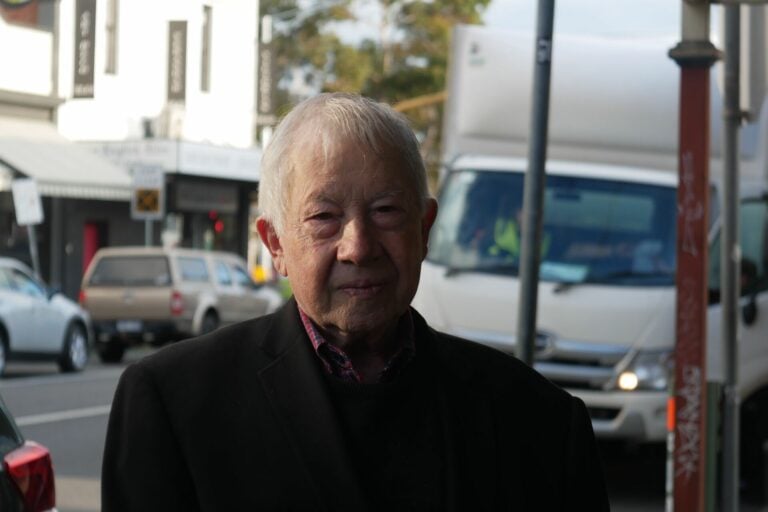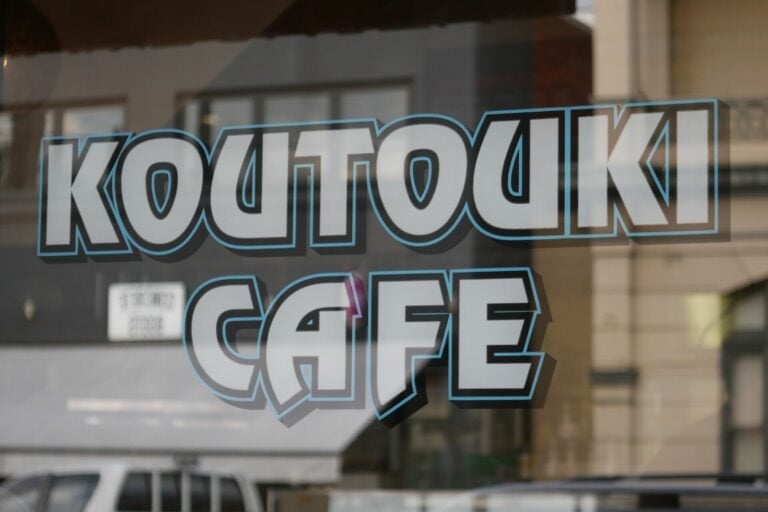Just off the corner of Beissel and Burnley Street in Richmond, there’s a coffee shop called Koutouki.
As I walk in the owner George Miltsos is serving another gent. We’re about to sit and chat when his phone rings with a video-call; family in Greece.
He tells me he has to take it. I tell him I understand.
So, taking a seat, I have a look around.
The walls are adorned with an eclectic mix of Hellenic imagery. Evzones, white pebble beaches, village artisans working on their crafts.
I was told by a very old friend, that Koutouki, since its opening in 2000 has served its surrounds as a social hub for the members of our community.
The kind of place where drinks and meze, stories and the odd game of cards are shared between loyal patrons and dear friends. The age-old pastimes of our elder men.
But with the passing of years, their numbers have grown smaller. Their memory however, is still a strong as ever.

As he places a coffee in front of me, George begins to tell me a tale.
“Before we opened here, taking over from my uncle, I drove forklifts at a local factory.” He says.
“But I’ve been doing this since 12 years old. I was born here but grew up in Greece. My father Stylianos owned a Psarotaverna in Triandria.”
“When I left school, I worked in his kitchen. Started out peeling onions. I used to wonder why they made me cry.” He remembers.
George says that while they started Koutouki as strictly a café, things soon took their own course.
“We had our regulars, older gentlemen at that time in their sixties. And they were here every day, without fail. Soon enough they started asking for meze, and we obliged. Before we knew it almost every evening we’d become a little taverna.”
“At that time we had a kafenio across the street, so on Fridays we’d roast a lamb on the spit and ferry it across. We’d have the whole spread, it only seemed natural.” He recalls with a smile.
His mother Stella tells me her Australian patrons were particularly fond of the loukaniko.
“It became a home away from home for them, and for us. They quickly became more than customers, they were our friends, they were like family.” Says George.
“There was a real sense of community, the old boys would pay for each other, they’d come up with sets of rules to dictate who’d cover the bill… usually involving the Greek super-league results.” He chuckles.
“Now… most of them are no longer with us. But we remember them in our own way.”
Kyr. Stamati one of their original patrons, had been sitting nearby filling in the details, George now called on him to explain.
“Whenever one of us passes, we write their name and draw a cross on the bottom of their usual chair.” He says.
“They’re with us in our memories of course, but as we see it, they’re still here with us as well. Every one who’s passed, their name is written down.” Kyr. Stamati adds.

George and Kyr. Stamati laugh that his name’s already been written down.
“θα παιθάνω όταν θέλω εγώ (I’ll go when I’m ready)” he replies with a smirk.
Kyr. Stamati tells me he arrived in Australia back in January of 1966. He’s worked a lifetime in Greek schools, was a reporter for some years, and now spends his time doing works for the local church.
“I’ve seen a decline in our identity over the years. You only have to look at the number of Greek school enrolments to see it. Places like this, like Koutouki, they help us hold onto who we are.” This he wants to make clear.
George and his family have decided to begin the process of selling up. He tells me it’s time. They’re not as young as they used to be, and for a variety reasons, one day not too far away, they’ll close their doors for the final time.
“The stories we’ve told, the laughs, the tears… it’s all been worth it.”
“A lot of people get into this industry to make money. You don’t make money in an industry like this. It’s a wage you make for yourself. And if you’re going to do it, you’d better do it right.” Is George’s philosophy.
“The day I close those doors, and I’m walking down the street and someone shouts out ‘hey George, we miss you man’… that’ll be my payday.”









